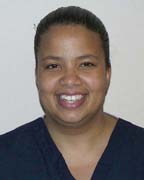William Thorell, M.D.
House Officer VI, Surgery
One of the main justifications in all lay articles I’ve read regarding resident work hour restrictions is patient safety. I’m certain that long hours and sleep deprivation lead to a percentage of the medical errors reported in the 1999 Institute of Medicine report, “To Err is Human.” An attempt, of course, should be made to address these errors. However, to promote sleep deprivation in residents as the main problem and work hour restrictions as the solution with regard to medical errors is inaccurate and inappropriate (but effective if your goal to legislate work hour restrictions). I don’t like the idea of an outside agency, whether the ACGME or the residents union, dictating when I can and cannot work.
medical errors is inaccurate and inappropriate (but effective if your goal to legislate work hour restrictions). I don’t like the idea of an outside agency, whether the ACGME or the residents union, dictating when I can and cannot work.
As a surgical resident, I fear that blind adherence to these regulations could adversely affect the quality of the training in surgical specialties. For example, if I come in to see a patient in the ER at 10 p.m.-12 a.m., under strict interpretation of the rules, as I understand them, I would not be allowed to participate in a 8 a.m. brain tumor resection or aneurysm clipping which may be very important for my training. I think residents, in many circumstances, are used inappropriately as low-cost, salaried workhorses for academic hospitals and community hospitals that participate in teaching residents (for blood draws, redundant paper work, etc.) when that work can be done by numerous ancillary personnel or physician extenders. If used to do work related to training and education, I believe, on average, an 80-hour workweek is probably fairly reasonable.
Cheryl Zimmerman, M.D.
House Officer IV, Obstetrics/Gynecology

I am completing my residency now, so the new work hours really won’t affect me. But I think it’s good that residents will have more time to rest because of the restrictions on total number of hours that can be worked weekly. On the other hand, it may influence some residents’ total amount of experience received because their specialties have a greater relationship between the hours worked and opportunities for learning experiences. I think OB/GYN and surgery residencies will always require many more hours per week than other specialties. But, overall, it’s good for residents to get more rest so they’re not working overly tired and possibly subjecting patients to needless risks because of fatigue affecting their ability to think appropriately. If I had been under the new regulations, I also think I would have more time to study at home and to just be away from the workplace.
Kelly Caverzagie, M.D.
House Officer I, Internal Medicine

The driving force behind the movement to change residents work hours is not from residents themselves, as much as the court of public opinion. Patients are concerned about the safety of their care. Residents are concerned about not only patient care, but the resident’s own health, as well. There is growing data that shows increased rates of depression among residents, more pregnancy complications with themselves, suicide and many of these issues are relating to stress as a result of the traditional work schedule. These new regulations are designed to increase both patient safety and resident safety. There are many questions about whether or not these regulations will impede a resident’s ability to learn. We refer to our residency as “working and learning” environment, not just in terms of strict work hours. In addition to the new regulations coming down, we’d also like to see a reduction of the non-educational work that residents have to do like blood draws and transporting patients. The new regulations will create some confusion and may be tough on some people in the beginning, but taking everything in context, I feel that we can make the changes necessary to focus on residents and patient safety. Our creed is to do no harm, and for that reason we need to look hard at ourselves and find the ways we need to change.
Sharon Stoolman, M.D.
House Officer II, Pediatrics

I think it is a good idea. But I think it may be hard to change the mindset of some staff physicians who went through the older residency programs. They may not be convinced that the new regulations provide for adequate learning curves. A lot of learning does happen after hours when you’re on call and have to make your own decisions. I think one benefit is that the 80-hour ceiling does not include the time we spend reading outside the hospital. I find that when I do have a slower week – an 80-hour week – I do more reading at home. When my work hours push up to 100 or more for the week, I get less reading done at home, and I think that while it’s great to get hands on experience, you have to combine that with literature learning.
Also, a lot of people find keeping up with residency hours makes it hard to sustain personal relationships and other interests, and I think they will be excited about the new work hours. I am a little skeptical how the new hours will be implemented and enforced. I think a lot will depend on the resident’s specialty. I did a year in surgery before switching to pediatrics. The peds hours were definitely shorter than for surgery. I know a lot of physicians are still working 80 hours or more long after their residencies. From my point of view, I think we put in the hours and deserve to have a reasonable limit on the number of consecutive hours that we work. We recognize that we may not be at our peak performance 30 hours into a shift.